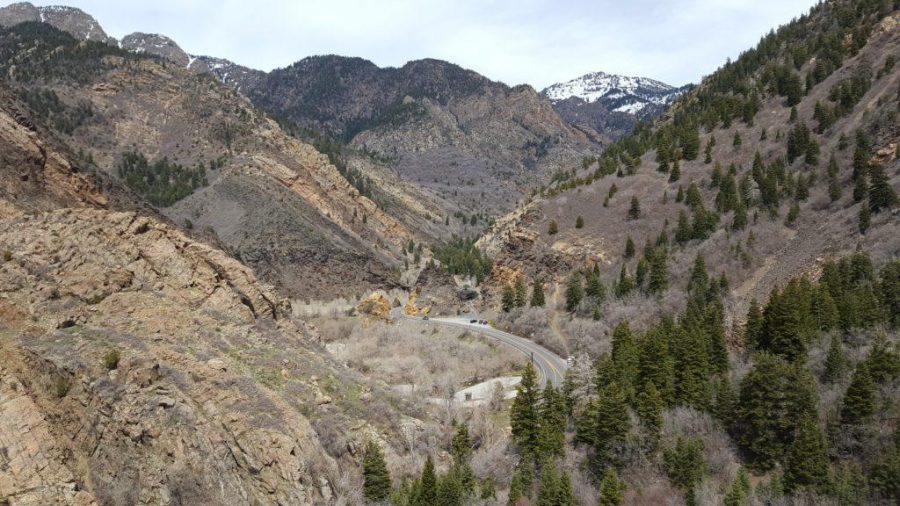Pay to eat. Pay to learn. Pay to park. Now, pay to hike? The United States Forest Service is considering implementing a fee to use specific sites in Big and Little Cottonwood Canyons next spring.
The proposed fee would be $6 per vehicle and would provide visitors with a three-day pass to use one of the 10 sites with amenities, such as bathrooms and picnic tables. An annual pass would be $45.
These plans have been years in the making, said Matthew Lane, recreation manager for the Uinta-Wasatch-Cache National Forest.
“The reason behind proposing the fee is to really enhance the recreational experience for the people who are going up there,” he said.
These two canyons, which see about five to six million visitors each year (more than any national park; Zion National Park has four million annual visitors), are popular, to say the least.
These fees would be used to maintain bathrooms and trails, improve interpretive programs for visitors, hire more staff members and increase security. Similar fees were introduced in American Fork Canyon in 1997, and Lane said they have been successful.
The U.S. Forest Service wants the public to help make the decision, though, which is why they have a long comment period via email from May to Labor Day for everyone to have their voice heard.
Lane has seen a mixed reactions to the fees, and in a poll Wasatch Magazine performed this month, a fairly even split, with a small preference toward paying fees was found.
Students such as Kara McFarland, a sophomore in pre-nursing at Westminster College, said paying is an inconvenience and unnecessary, as she’s never noticed a lack of upkeep in the facilities.
“I definitely think the fees will deter people or question if they actually want to go,” she said, which is the opposite message these natural places should be sending the public. After dropping big bucks for climbing equipment or a mountain bike, the last thing students want to see are more price tags.
Kitty Benzar, president of the Western Slope No-Fee Coalition, helps make public lands accessible to everyone.
“People should be able to access their undeveloped public land, like national forests and BLM land, as a birthright,” she said. “They are paying taxes to the agencies that manage them and those taxes ought to give you a minimal level of access.”
Benzar helped advise hikers who sued the U.S. Forest Service in California for recreation fees and won last month. She said a law, passed in 2004, prohibits fee area implementations unless hikers are using the facilities they are funding with their fees.
The agreement California came to was that cars who parked at these sites would have to pay the fee, but those parking a half-mile outside the designated trailheads were exempt. This is a similar model to the Cottonwood fees, as hikers, bikers and climbers will not have to pay if they park outside these lots: Big Cottonwood’s Mill D/Cardiff, Mill B South, Silver Lake, Spruces Winter, Guardsman Pass and Donut Falls as well as Little Cottonwood’s White Pine, Temple Quarry, Catherine’s Pass and Cecret Lake trailheads.
For those wishing to comment, email Matthew Lane at [email protected].


